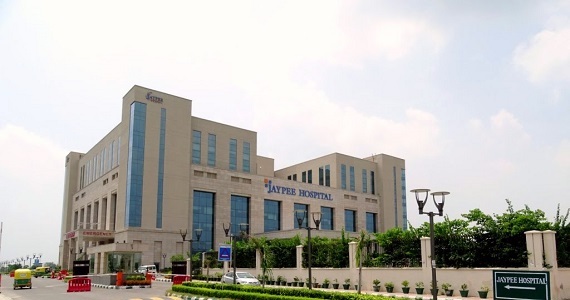Stress Echocardiographyn Treatment in India
treatment
starting from
Introduction
Life is an intricate dance of emotions, experiences, and challenges that may often lead us down paths of stress and anxiety. While these emotions are a natural part of the human experience, prolonged and unmanaged stress can adversely affect our physical health, particularly the heart. This blog delves into the realm of Stress Echocardiography, a diagnostic procedure that unveils the secrets of the heart, helping identify potential heart-related issues caused or exacerbated by stress. Let's explore this medical marvel, its cost in India, symptoms, causes, diagnosis, and available treatments.
What is Stress Echocardiography?
Stress Echocardiography is a non-invasive medical test that evaluates the heart's function under stress conditions. By combining echocardiography (ultrasound imaging of the heart) with exercise or medication-induced stress, doctors can assess the heart's response to stress and diagnose underlying cardiovascular conditions.
The Procedure and Cost in India
The Stress Echocardiography procedure is typically performed by a trained cardiologist and involves the following steps:
- Baseline Echocardiogram: The process begins with a baseline echocardiogram, where the patient lies on a table while a technician applies gel on the chest and places a transducer to obtain detailed images of the heart's structure and function.
- Stress Induction: There are two ways to induce stress during the test:
- Exercise Stress Test: The patient walks on a treadmill or pedals a stationary bike to increase their heart rate. The intensity of exercise gradually increases to bring the heart to the desired stress level.
- Pharmacological Stress Test: For patients who cannot perform physical exercise, a medication (e.g., dobutamine) is administered through an IV to simulate the effects of exercise on the heart.
- Stress Echocardiogram: During stress induction, the technician continues to record images of the heart to observe any changes in its structure and function caused by the heightened activity.
- Comparison with Baseline: The obtained images during stress are then compared with the baseline echocardiogram to identify any discrepancies that could indicate heart problems.
Cost in India: The cost of Stress Echocardiography in India can vary depending on the location, medical facility, and additional tests required. On average, it ranges between INR 5,000 to INR 12,000.
Symptoms of Stress-related Heart Issues
Stress can take a toll on the heart, leading to various symptoms that should not be ignored:
- Chest Pain or Discomfort: Recurring chest pain, tightness, or discomfort could indicate heart problems due to stress.
- Shortness of Breath: Feeling breathless, especially during physical activity or when stressed, might be a sign of heart-related issues.
- Irregular Heartbeat: Palpitations or a sensation of irregular heartbeats can be an indicator of stress-induced cardiac concerns.
- Dizziness or Fainting: Feeling lightheaded or fainting can result from inadequate blood flow to the brain caused by heart problems.
- Fatigue: Chronic fatigue or exhaustion, even after sufficient rest, might be linked to stress affecting the heart's efficiency.
- Swelling: Unexplained swelling in the legs, ankles, or feet could be due to stress-related heart issues.
Causes of Stress-related Heart Problems
Stress does not directly cause heart disease, but it can contribute to its development or exacerbate existing conditions. Some of the key causes include:
- Overactivation of the Sympathetic Nervous System: Chronic stress triggers the release of stress hormones, which over time, strain the heart and blood vessels.
- Unhealthy Coping Mechanisms: Individuals under stress might resort to unhealthy habits like overeating, smoking, or excessive alcohol consumption, which can adversely affect the heart.
- High Blood Pressure: Stress can elevate blood pressure, increasing the strain on the heart and potentially leading to hypertension.
- Inflammation: Prolonged stress can promote inflammation within the body, including the arteries, contributing to heart disease.
Diagnosis and the Importance of Stress Echocardiography
The diagnosis of stress-related heart problems often involves a combination of medical history, physical examination, and various diagnostic tests. Stress Echocardiography plays a vital role in this process as it allows healthcare professionals to:
- Assess Cardiac Function: Stress Echocardiography provides real-time images of the heart under stress, helping cardiologists evaluate its function and detect abnormalities.
- Diagnose Coronary Artery Disease (CAD): This procedure helps identify narrowed or blocked coronary arteries, enabling early intervention to prevent heart attacks.
- Evaluate Valve Function: Stress Echocardiography aids in assessing heart valve function, determining if any regurgitation or stenosis is present.
- Monitor Cardiac Health: For individuals with known heart conditions, Stress Echocardiography allows doctors to monitor the heart's response to stress and adjust treatment plans accordingly.
Treatment Options
The treatment for stress-related heart issues primarily depends on the specific diagnosis and severity of the condition. Common treatment approaches include:
- Lifestyle Modifications: Adopting a heart-healthy lifestyle with a balanced diet, regular exercise, stress management techniques (e.g., yoga, meditation), and adequate sleep can significantly improve heart health.
- Medications: Doctors may prescribe medications to control blood pressure, cholesterol levels, or manage heart rhythm abnormalities.
- Cardiac Rehabilitation: For individuals with existing heart conditions, cardiac rehabilitation programs can provide structured support to enhance heart health and manage stress.
- Surgical Interventions: In severe cases, surgical procedures like angioplasty or bypass surgery might be necessary to restore blood flow to the heart.
Conclusion
Stress echocardiography has emerged as a vital diagnostic tool in the realm of cardiovascular health. By evaluating the heart's response to stress, this non-invasive procedure enables early detection and effective management of heart conditions. While stress is an inevitable part of life, it is essential to recognize its impact on our heart health and take proactive steps to mitigate its effects. Through lifestyle changes, timely medical intervention, and stress-reducing practices, we can pave the way for a healthier heart and a happier life. Remember, your heart deserves the utmost care and attention, for it is the engine that keeps your life's journey going.
How It Works
Need help in organizing medical travel to India?













